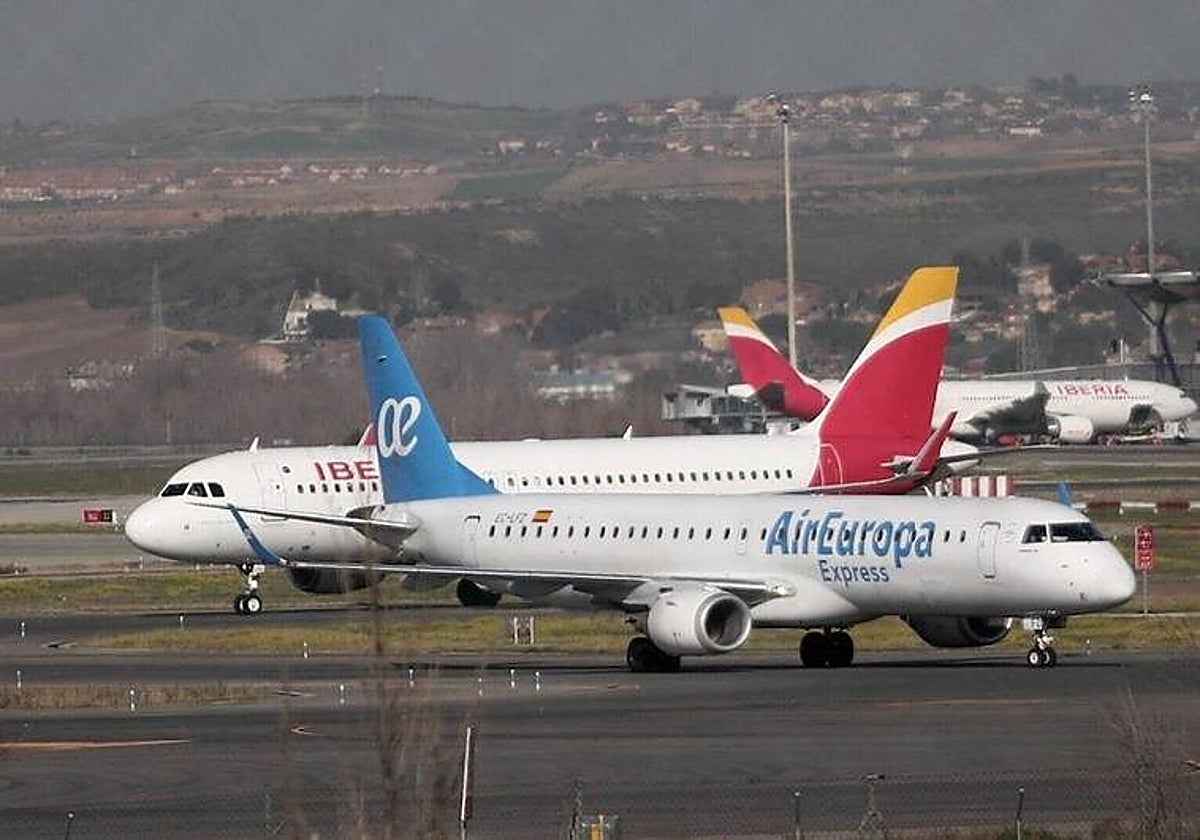Plan to ban flights in Spain where an alternative train journey of less than 2.5 hours exists
The measure, included in the political pact between the Socialists and the Sumar party, would affect five popular domestic routes in the country
Edurne Martínez
Madrid
Monday, 30 October 2023, 16:19
Short flights within Spain where an alternative train journey of less than two hours and a half could be taken instead will be banned under a new government proposal.
Spain's Socialists and hard-left Sumar party, if they form a coalition, will scrap the flights to slash carbon emissions, but airline industry sources said it will have a minimal impact as there are very few routes which would be affected.
According to the measures, the proposal would affect five routes: Madrid-Barcelona, Madrid-Malaga, Madrid-Valencia, Madrid-Alicante and Madrid-Seville. But there could be an exception when these routes are used to travel to Madrid to then catch a connecting international flight. Last year more than 3.5 million passengers travelled on these flights. The measure would mainly impact Iberia and Air Europa's connections to their international destinations, mainly in Latin America and the United States.
The same measure was applied in France, but its success is debated due to very few flight routes being affected and a smaller than expected amount of emissions reduced. Just three routes from Orly airport were affected by the ban, none from Charles de Gaulle, which is the country's main airport.
President of the Airline Association (ALA) Javier Gándara said if the flights were banned in Spain connecting passengers would fly to other hubs instead such as Paris or London, and Barajas would lose its competitiveness. He said the train is "completely complementary to the plane", which is why he advocated "intermodality" so each passenger can choose the option that most suits them.
"In the last few years there has been a natural transfer of passengers from aeroplanes to trains, and on the main routes 80% of citizens choose the train, something that will accelerate even more with the liberalisation of high-speed trains and price reductions," Gándara told SUR. In total, 23.7 million passengers used high-speed trains in 2022, 76% more than the previous year and even 6% above the 22.4 million train passengers in 2019, a record year for tourism before the pandemic.
The 'green' fuel
"An intermodal solution should be offered by getting trains to major airports - something that currently does not happen at any of them - and encouraging the development of sustainable aviation fuel (SAF), which is the way to reduce 80% of emissions. This is the real tool in the short and medium term to decarbonise the sector," said the president of ALA.
Even if the five routes were eliminated, the 3.5 million passengers who boarded these planes last year do not represent even 1% of the 240 million passengers who travelled through Spanish airports in 2022, which would mean eliminating 1% of total emissions, some 300,000 tonnes of CO2, according to calculations by Ecologists in Action. They are calling for the elimination of 51,000 air journeys with an alternative train journey of less than four hours.
